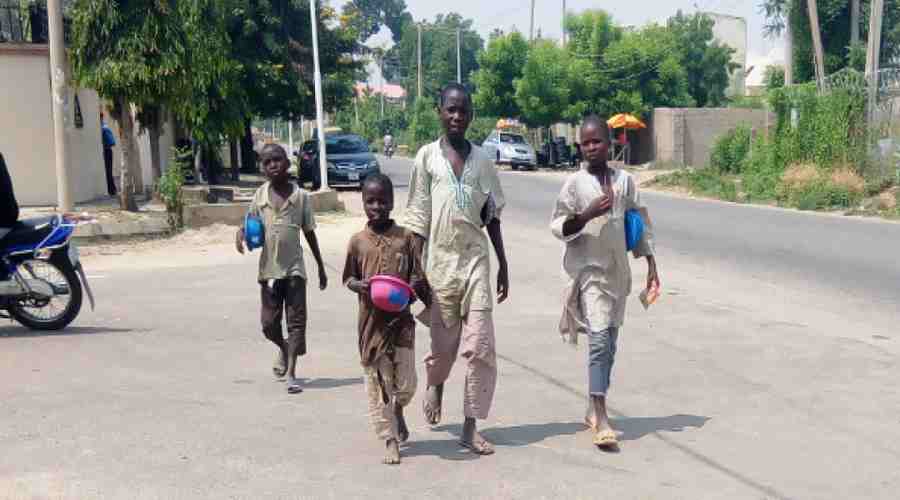As Nigeria joins the rest of the world in celebrating Children’s Day, it is a moment to reflect on the myriad challenges facing the country’s young citizens.
While Children’s Day is intended to celebrate childhood and promote the welfare of children, in Nigeria, it also highlights the severe crises that hinder the growth and development of many children across the nation.
Here, Daily Trust explores four critical issues that Nigerian children continue to face.
Childhood Mortality
Childhood mortality remains a significant concern in Nigeria, with malaria being a leading cause of death among children under five.
Emirship tussle: Kano Dep Gov retracts allegation against Ribadu
‘Tinubu not playing politics with anti-corruption’
According to UNICEF, Nigeria accounts for about 31% of the global malaria deaths, with an alarming number of these victims being young children.
Additionally, diseases like measles, polio, and pneumonia—despite being preventable through vaccination—continue to claim young lives.
The World Health Organization (WHO) reports that over 800,000 Nigerian children die annually before their fifth birthday, with a substantial proportion of these deaths due to conditions that could have been prevented with adequate healthcare services and immunization coverage.
Poor Access to Basic Education
Education is a fundamental right, yet millions of Nigerian children are deprived of this essential necessity.
According to the United Nations Educational, Scientific and Cultural Organization (UNESCO), Nigeria has the highest number of out-of-school children in the world, estimated at over 10.5 million.
Factors contributing to this dire situation include poverty, cultural practices, and inadequate educational infrastructure.
Many children, especially girls, are forced to abandon their education due to early marriages or the need to support their families financially.
The Northern regions are particularly affected, where insurgency and socio-cultural barriers significantly hinder educational opportunities.
This lack of access to basic education not only stunts the intellectual growth of these children but also perpetuates the cycle of poverty.
Terrorism and Banditry
The impact of terrorism and banditry on Nigerian children is profound and multifaceted.
The ongoing insurgency by groups like Boko Haram and the increasing incidents of banditry in various regions have led to widespread displacement, loss of family members, and psychological trauma.
Thousands of children have been orphaned or separated from their families, and many have been forcibly recruited as child soldiers or used in suicide attacks.
The United Nations High Commissioner for Refugees (UNHCR) estimates that over 1.9 million people are internally displaced in Nigeria, with a significant proportion being children.
These children are deprived of a stable environment, education, and basic healthcare, making their future uncertain and bleak.
Child labour and Abuse
Child labour remains a pervasive issue in Nigeria, driven by poverty and lack of access to education.
The International Labour Organization (ILO) estimates that millions of Nigerian children are engaged in various forms of labour, from street hawking and domestic servitude to more hazardous work in agriculture and mining.
These children often work in dangerous conditions for long hours, depriving them of their childhood and education.
Furthermore, child abuse, including physical, emotional, and sexual abuse, is rampant.
According to the National Population Commission (NPC), about 60% of children in Nigeria experience some form of violence before the age of 18.
This abuse leaves deep psychological scars and hinders their development and well-being.
Source: www.unicef.org

 Join Daily Trust WhatsApp Community For Quick Access To News and Happenings Around You.
Join Daily Trust WhatsApp Community For Quick Access To News and Happenings Around You.

